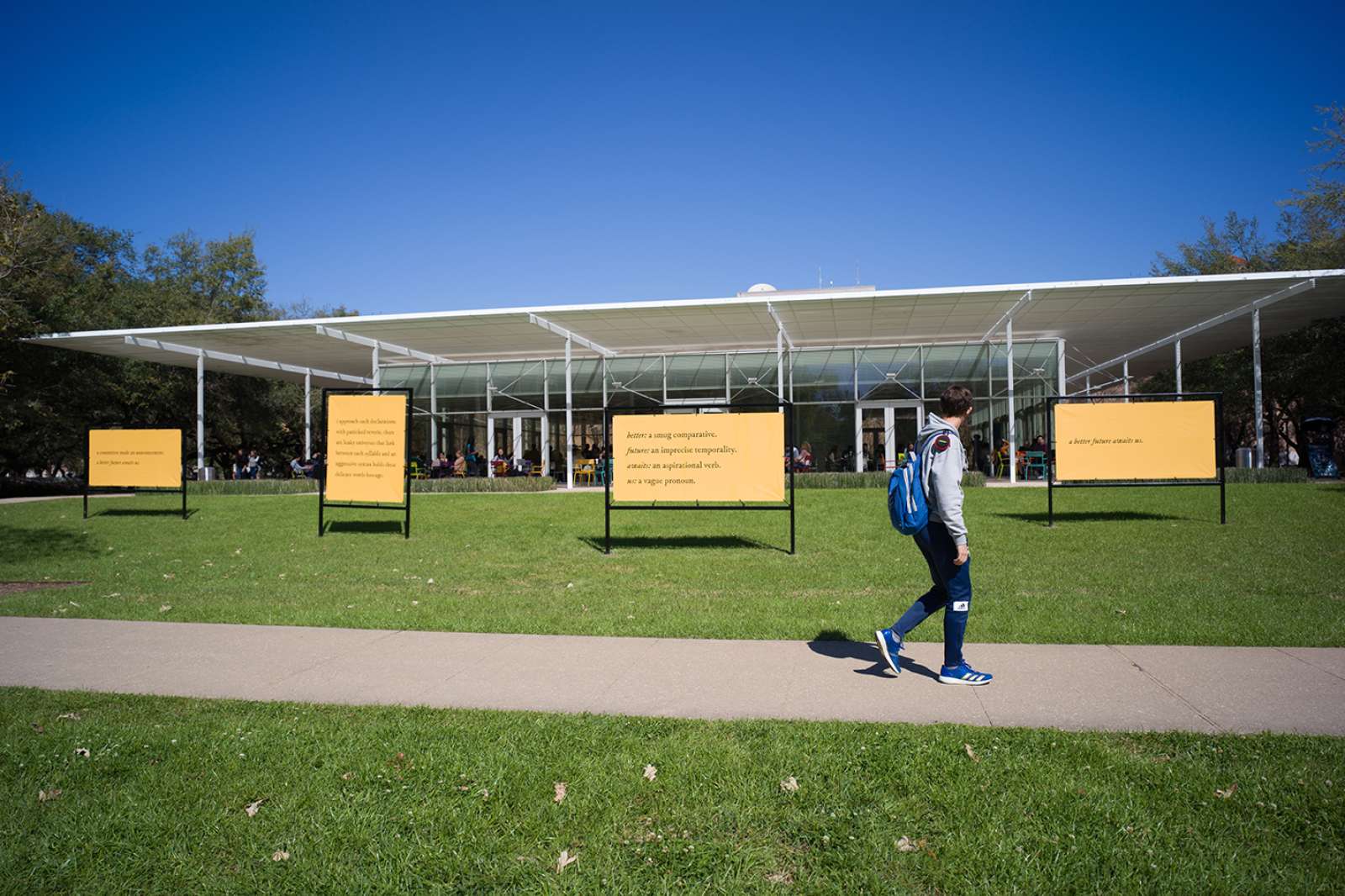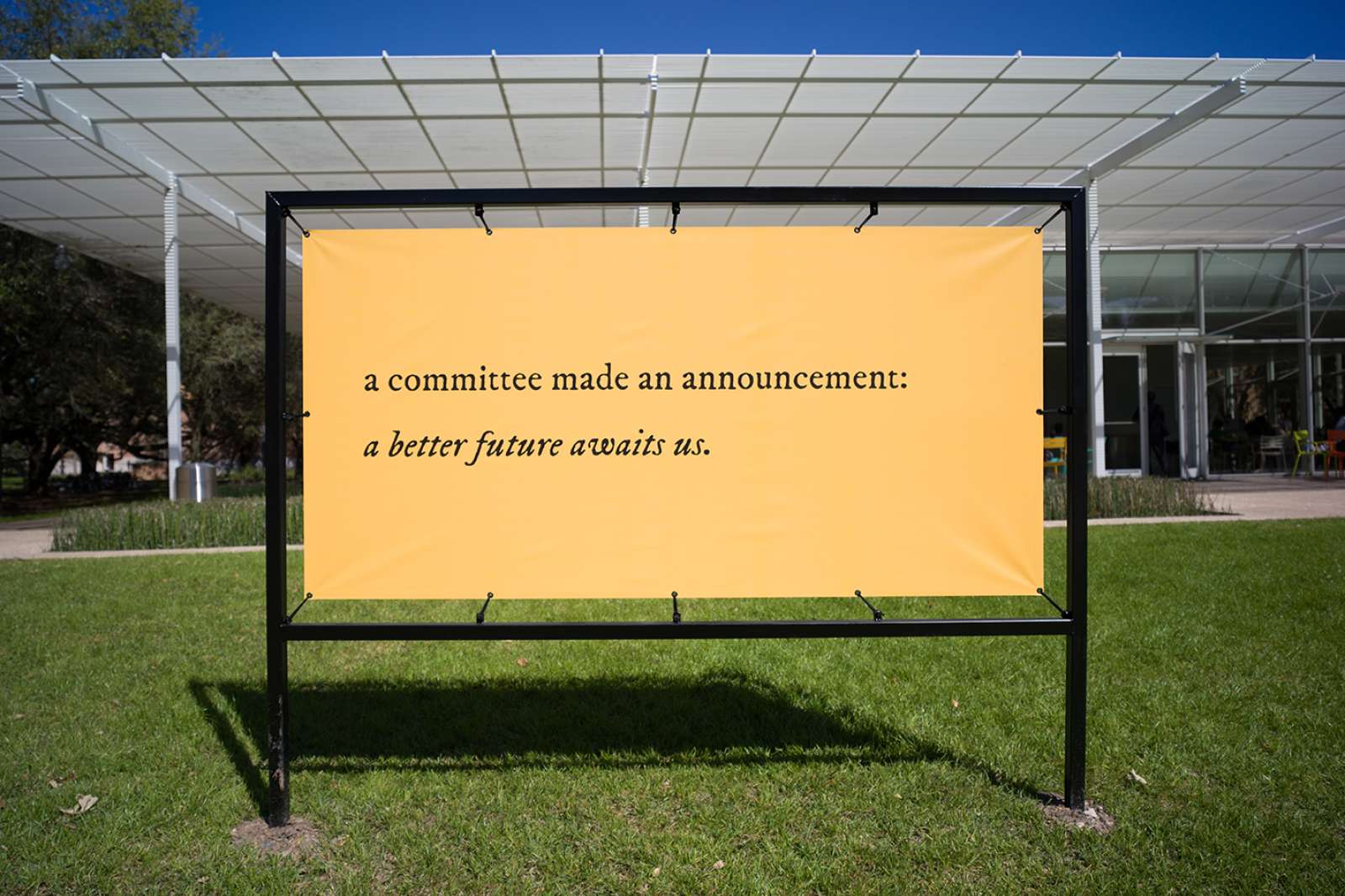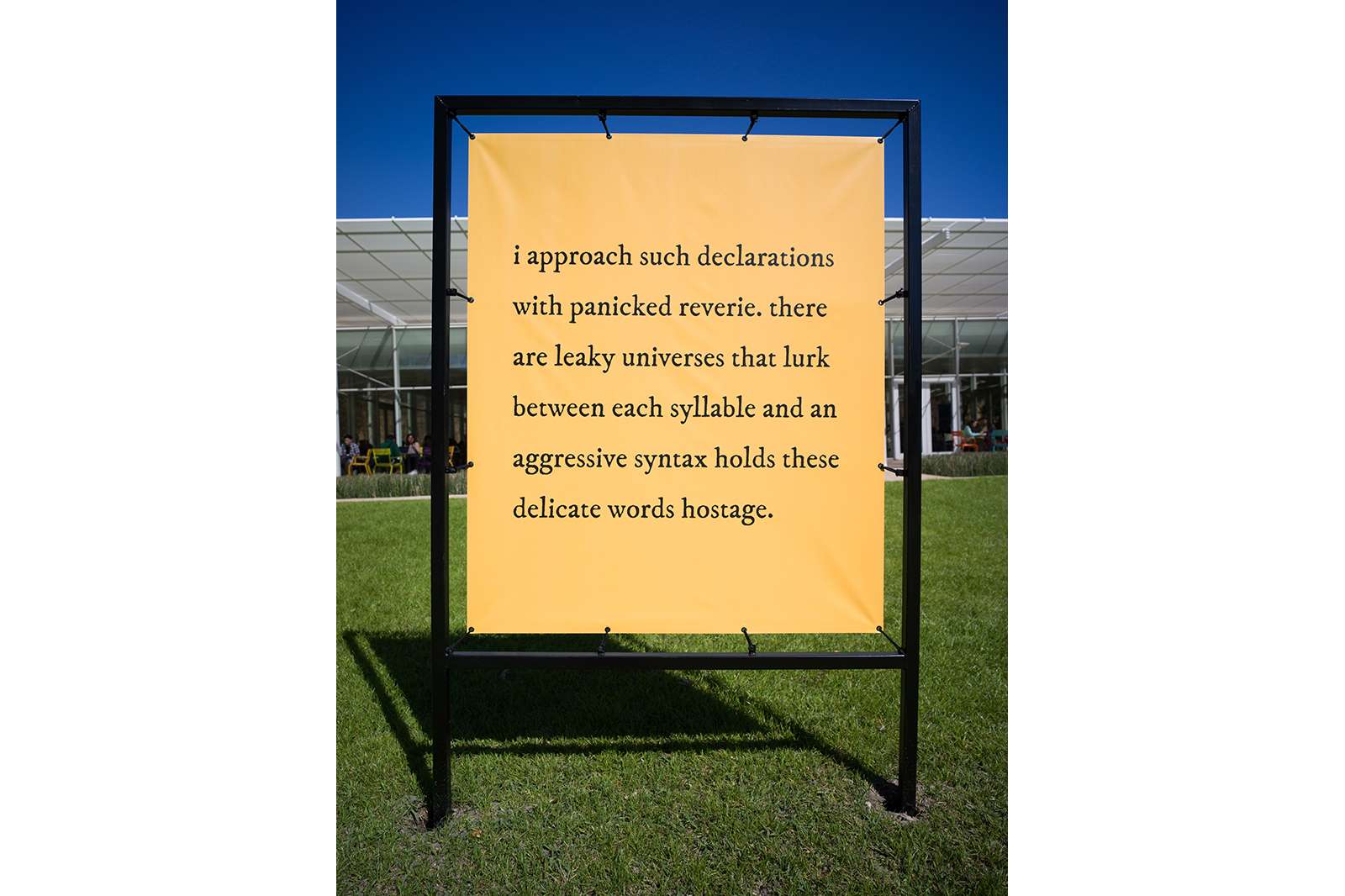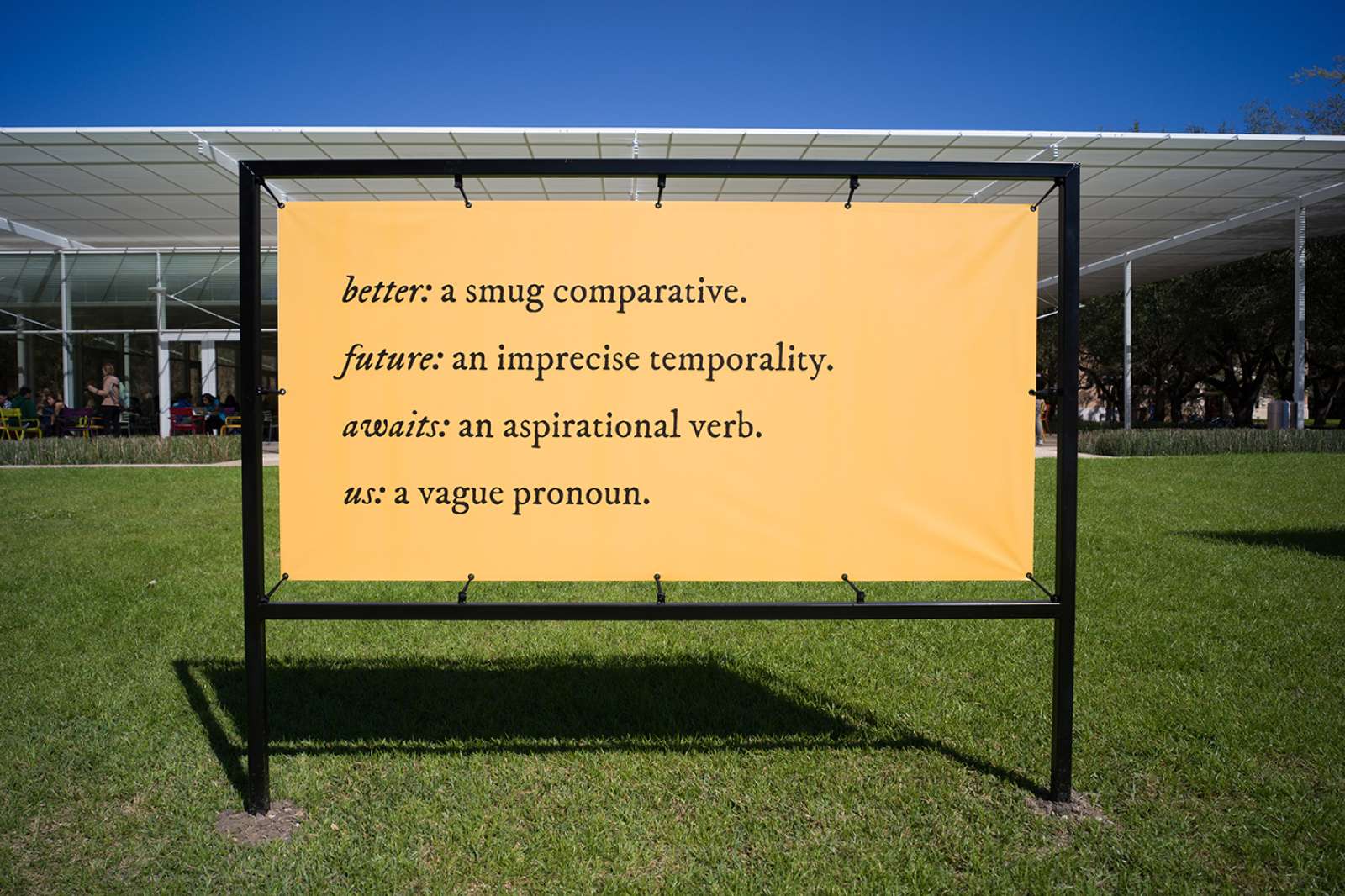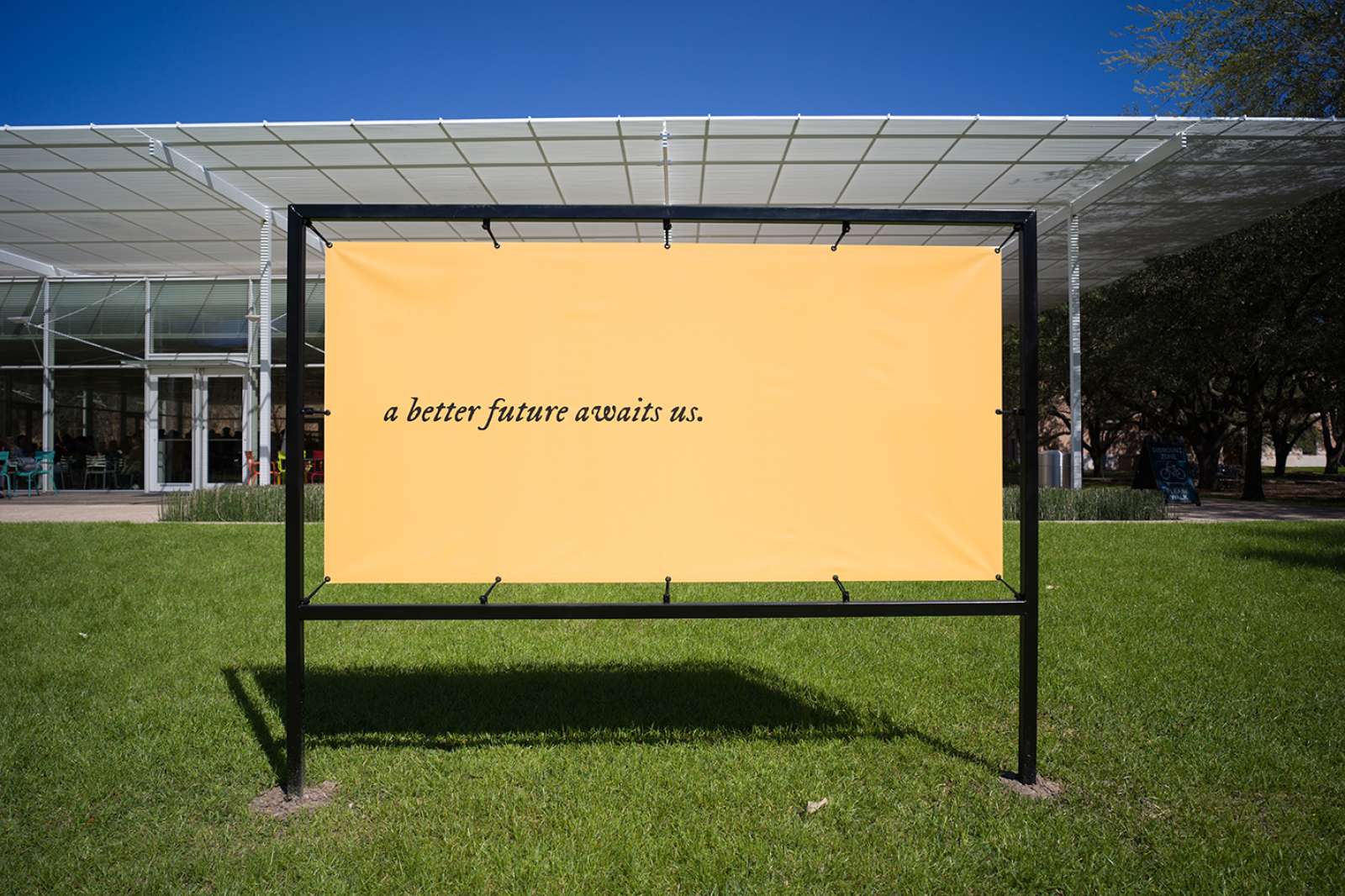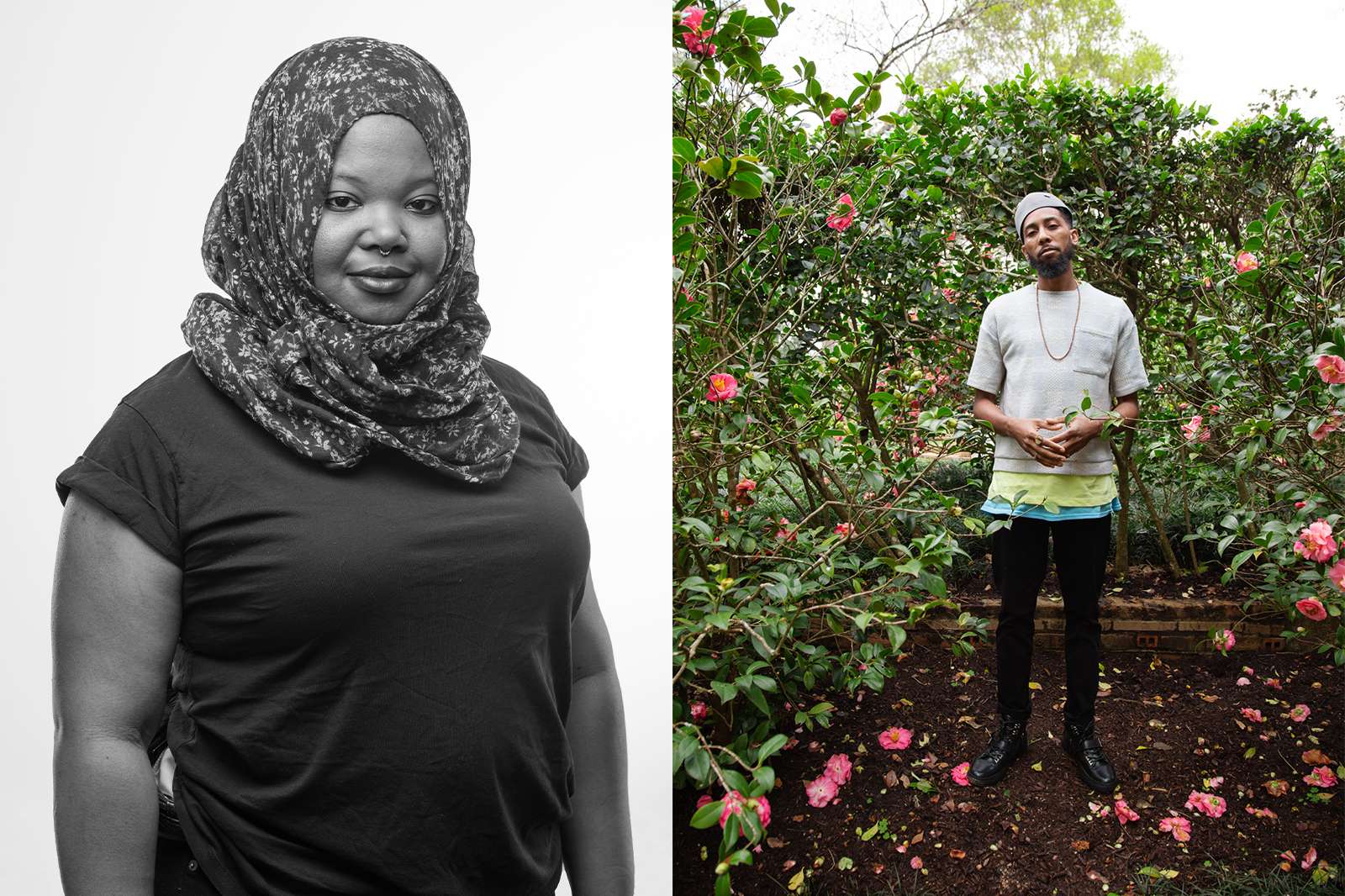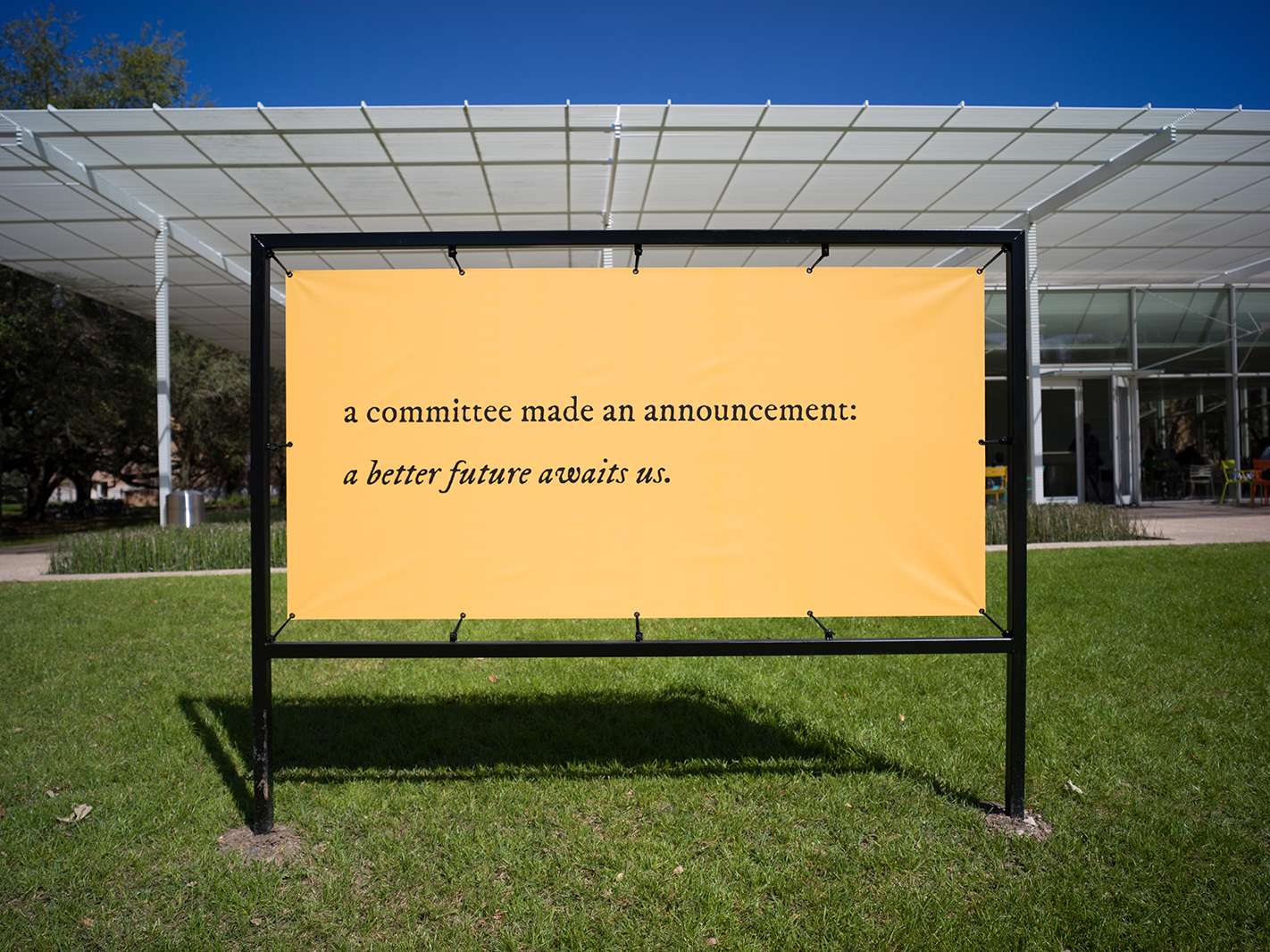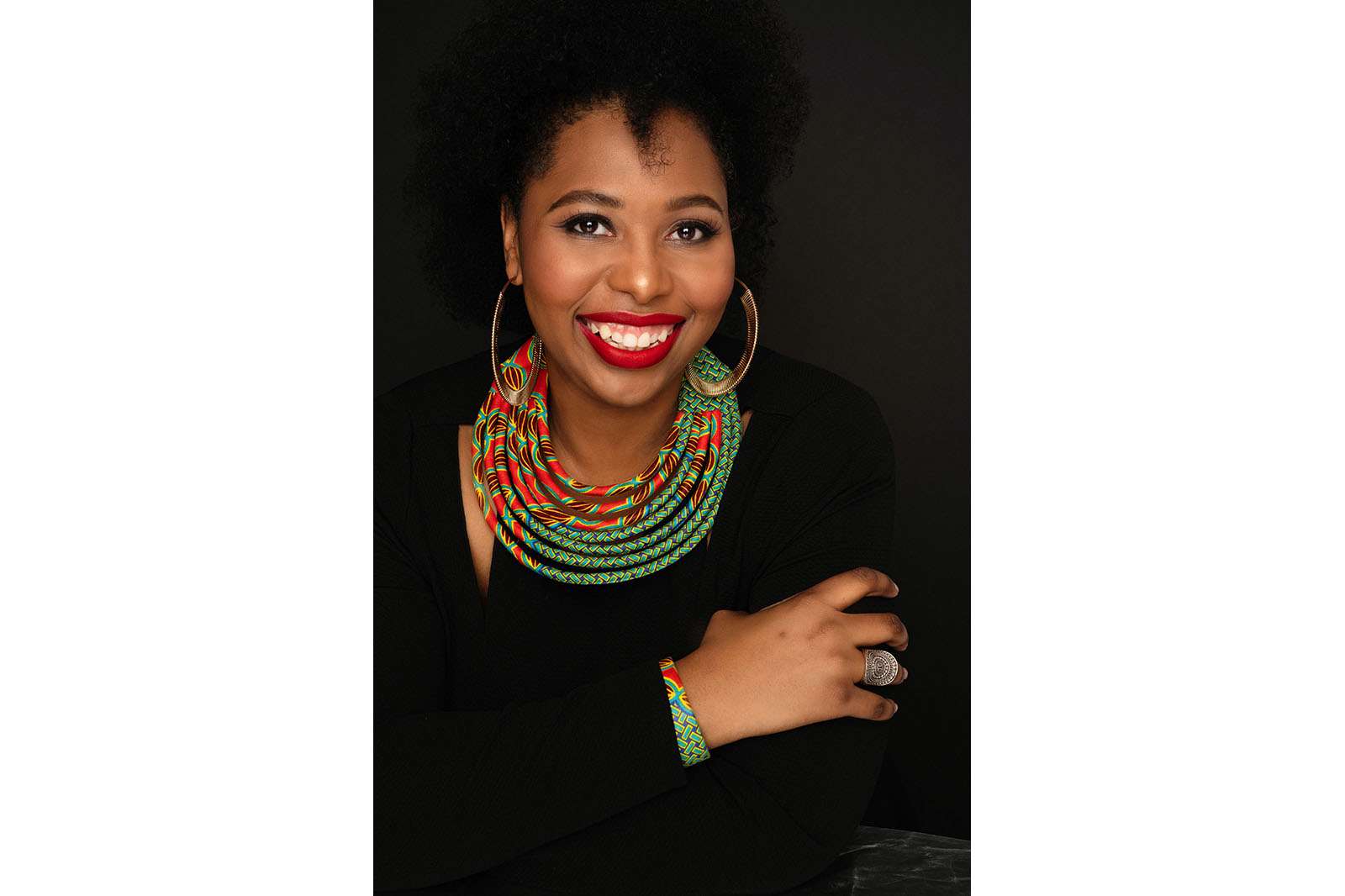Platform: Kameelah Janan Rasheed
Temporary Public Art | Commissioned by the Moody
Platform: Kameelah Janan Rasheed, perhaps, there is no sequel
Commissioned by the Moody Center for the Arts, Rice University
The third in Rice Public Art’s groundbreaking Platform series features a newly commissioned text-based installation by Kameelah Janan Rasheed, a Brooklyn-based artist, and self-described learner. An educator, Rasheed reflects on the process of learning as an evolving practice that can occur through experimental and collective interactions. Installed across four large-scale vinyl banners located in the lawn to the west of the Brochstein Pavilion, Rasheed’s new poetic gesture, titled perhaps, there is no sequel, grapples with concepts of futurity, certainty, and underscores critical issues of exclusion and vulnerability through lyrical yet unequivocal words. The project seeks to generate student engagement, spark collaboration across disciplines, and engage with the many areas of ongoing research occurring at Rice University.
perhaps, there is no sequel, is inspired by the work of the late Benjamin Patterson (b. Pittsburg, Pennsylvania, 1934 – d. Wiesbaden, Germany, 2016) a composer, artist, and musician who is renowned for his instrumental role in the groundbreaking 1960s Fluxus movement. Expanding upon Patterson’s use of language in his performative musical scores—which provided sets of rules to incite specific actions from the public—Rasheed will establish a number of constraints within which viewers can elaborate on her text and produce countless new arrangements. The artist’s instructions will be outlined on cards and dispersed throughout strategic locations across campus, encouraging the participation of viewers, who can expand on, amplify, and reinterpret her words.
perhaps, there is no sequel is curated by Ylinka Barotto, Associate Curator, Moody Center for the Arts, Rice University.
About the Artist
Kameelah Janan Rasheed (b. 1985, East Palo Alto, California) is an interdisciplinary artist whose practice addresses themes of blackness, spirituality, and literacies. In her multifaceted text-based work, the artist confronts and interrogates the viewer with inquisitive language which she presents on large-scale banners, in immersive installations made of black-and-white Xerox paper, or as performative gestures. She has exhibited at the Contemporary Art Gallery of Vancouver (2019); Brooklyn Public Library, New York (2019); Brooklyn Museum, New York (2019); New Museum, New York (2018); Institute of Contemporary Art, Philadelphia (2017); Pinchuk Art Centre, Kiev (2017); The Kitchen, New York (2017); Queens Museum, New York (2016); Project Row Houses, Houston (2015—16); and the Studio Museum in Harlem, New York (2015), among other institutions. She is the author of two artist’s books— No New Theories (Printed Matter, 2020) and An Alphabetical Accumulation of Approximate Observations (Endless Editions, 2019)—and the founder of Mapping the Spirit, a digital archive encompassing documentation of lesser-known black religious experience in the United States. Rasheed is on the faculty of the MFA fine-arts program at the School of Visual Arts, New York, and is a social studies curriculum developer for New York public schools. She holds a BA in public policy and from Pomona College (2006) and an MA in secondary social studies education from Stanford University (2008). Rasheed lives and works in Brooklyn, New York.
About Rice Public Art’s Platform series
Rice Public Art’s Platform series brings temporary, site-specific projects to the Rice University campus. Launched in 2017, Platform invites contemporary artists to respond to artworks, architectural structures, and research at Rice University.





